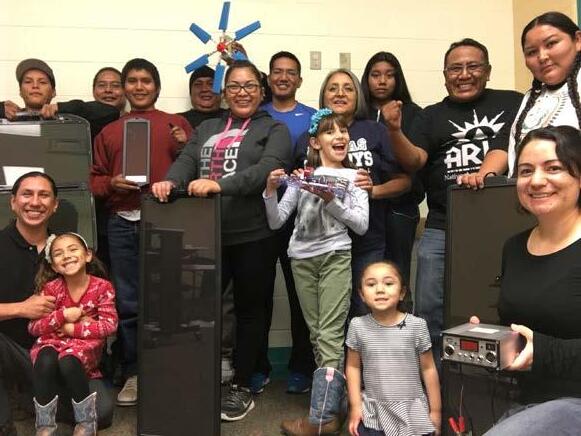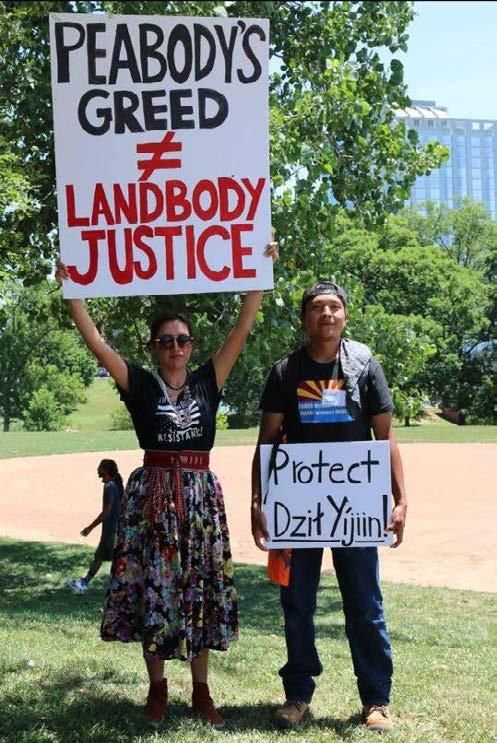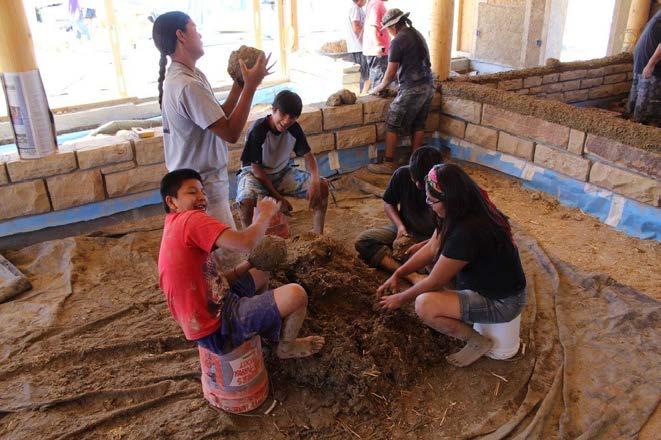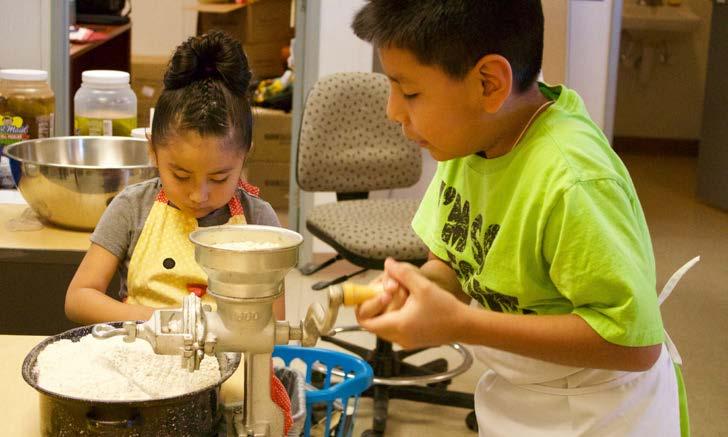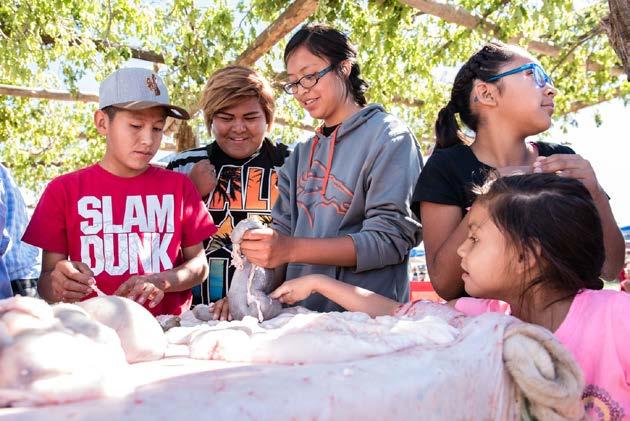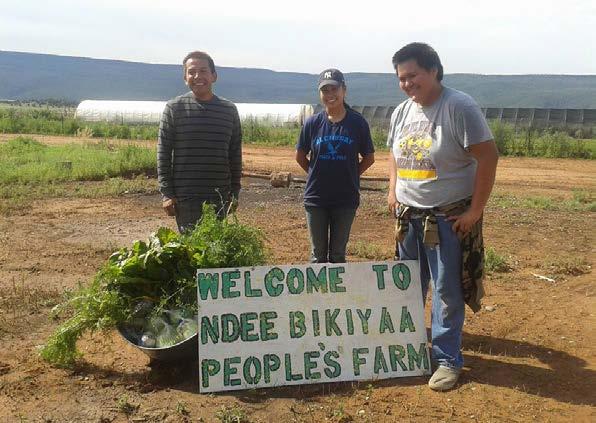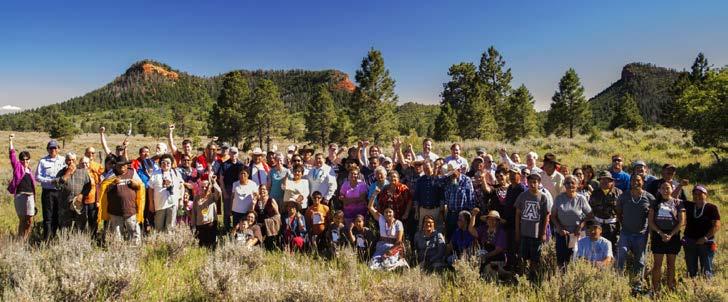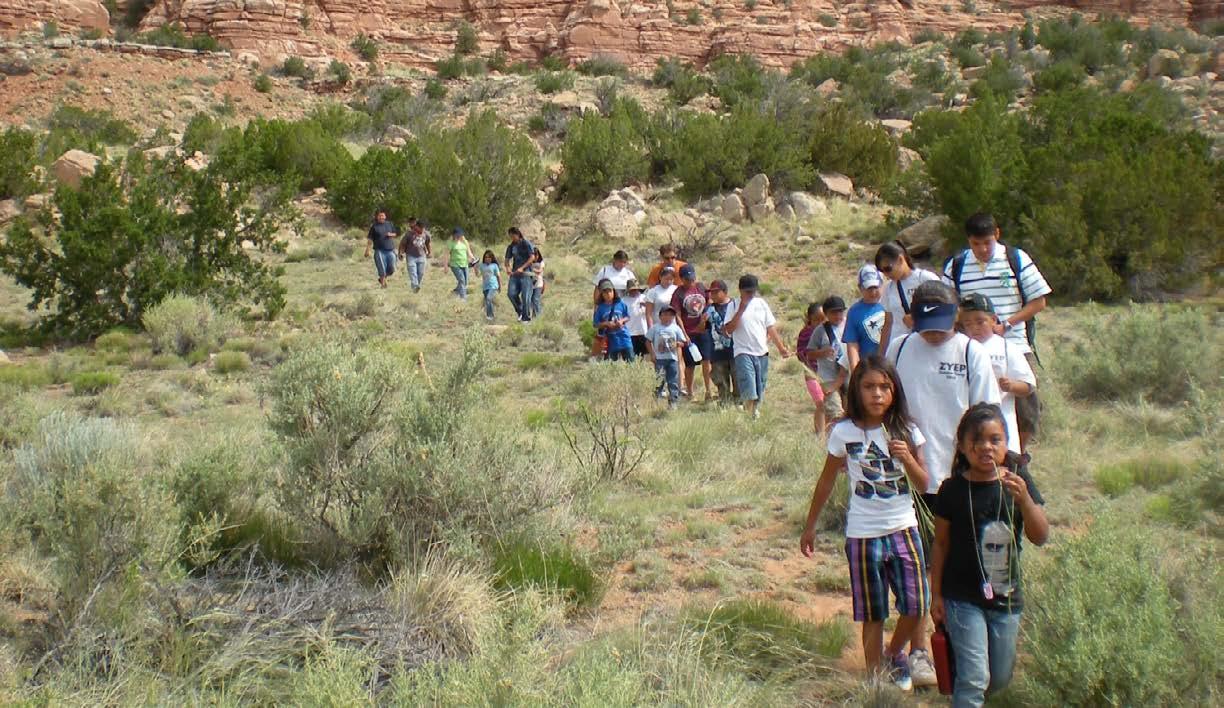
4 minute read
NATIVE PEOPLES’ TIMELESS OBLIGATION TO THE COLORADO PLATEAU
Since they arrived to their homelands on the Colorado Plateau, Native people have always stewarded this place. Today, Native people across the Colorado Plateau remain deeply committed to the multi-generational task of protecting the Plateau’s lands, waters, and other natural resources. Many Native people living on the Plateau, particularly those born to families steeped in culture, inherit ceremonial obligations that last for the duration of their lives. In turn, these ceremonies and traditions occur at culturally-significant locations across the Plateau – which further deepens ties between Native cultures and their ancestral homelands.
I was always out on the landscape doing something with older members of my family and my generation. So early on, you know, we were instilled with this idea that we were connected to these places out in the landscape. My cousins and I, we would go out hiking for the day or whatever and we’d go visit a spring or some other place far away from home and come back at the end of the day and sit around the dinner table with my aunts and uncles and grandparents. And they would ask, “Where did you guys go today? What did you see?”…After we relayed where we were, they would inform us about the name of that village or what that spring stands for….It wasn’t until later on. until probably I was in high school and started to assume more responsibility within the culture, taking part in ceremonies, that a lot of that information became more tangible to me. My responsibility to the landscape stands just from that understanding that Hopi People have a long continuous connection to a lot of these landscapes.
– Lyle BalenquahI
My grandfather was a well-known Navajo medicine man who conducted various healing ceremonies for our people and to this day many of those ceremonies have died off. His songs and prayers came with the importance of taking care of the land. It is part of who we are as the Five Fingered Earth People. It’s part of our culture and our responsibility to live up to that purpose. As a Diné woman, I am taught that living with the elements in life comes with gifts, knowledge, and values within our surroundings. All living beings have a purpose, story, and obligation on this landscape. These way of life teachings come from oral stories passed down many generations. They bring a lot of understanding of why we carry on this work to speak for the land and to simply be good relatives. That’s my perspective of why this work is important.
– Cynthia Wilson
My family is a big Zuni family. Traditional, follows a lot of traditional practices. Including that we have a lot of sheep. And just managing the sheep automatically ties you close to the land and the resources and understanding of those relationships. And then our family being very traditional follows the Zuni religion and all the different things that go on with that. In addition to that, specifically, some of my family members are rain priests. So that involves some obligations and thinking of relationships with the rain and the values there and what the rain priests’ functions are and being the family member, you tend to support that role and that brings a whole mindset to it as well. And we also are caretakers for one of the Zuni religious Kachina dancer representatives, a very sacred entity – we’re caretakers for that entity through the year. And so that also brings another sort of commitment and mindset and experiences that, that you get involved with through the years. And these are all lifetime commitments generally that start growing up as a kid and through time, every year, there’s something involved that brings you back to that kind of mindset. And then I’m also initiated into the Kiva with the dancing....So there’s lots of aspects that have tied me to my Zuni culture growing up, even though I didn’t grow up in Zuni. I grew up in the Midwest; I grew up visiting Zuni every year at least twice a year. And having a big family with all of those roots going down, it kept me connected to Zuni. So all of that Zuni experience helped me appreciate and value the land and resources, and I had that growing up.
– Kirk BemisII
I was told by one of my grandfathers, “If you really want to live this sacred spiritual way of life, you have to continue to pray and have faith. One day, someplace, you will know the answer will come and only you will know it, but it’s going to be for the rest of your life. That’s for you. You worked at it, you received it, and you’ll know. No more will human beings answer your questions. It’s going to come from the spiritual world.” So I don’t question those things anymore. And that’s what keeps me strong. You must continue to run or walk. You must be out there. When you go out there on the land, all the answers are out there. The spiritual beings will talk with you, all the birds, insects, you know, they’ll give you answers and it’s so amazing. You know? It’s really something that you have to find out for yourself.
This agriculture work is healing. Honestly, if I weren’t doing a lot of stuff – if I weren’t in my field every day irrigating and all these different things, I wouldn’t have that space to connect with the land, connect with the plant life, connect with the water, and just be there in a good space from growing, growing things for people’s nourishment....There’s a lot of healing that our people and our communities need. And I think there’s a big wave right now, we’re seeing this wave of movements happening to heal our communities. And that’s being done in so many different ways, through mental health and through nutritional practices, language, restoring traditional knowledge and, and just being outside and with our ancestral places, ancestral lands, and the places we connect to spiritually, that’s our connection to culture.
– Aaron Lowden
And that’s where I am now; I’m trying to use that same information that I received from the elders, being out there walking with them, listening to them, these are the same words that I use when I talk to people about Zuni. It’s not coming from me. It’s not anything that I made up. It’s coming from my elders.
– Octavius Seowtewa
